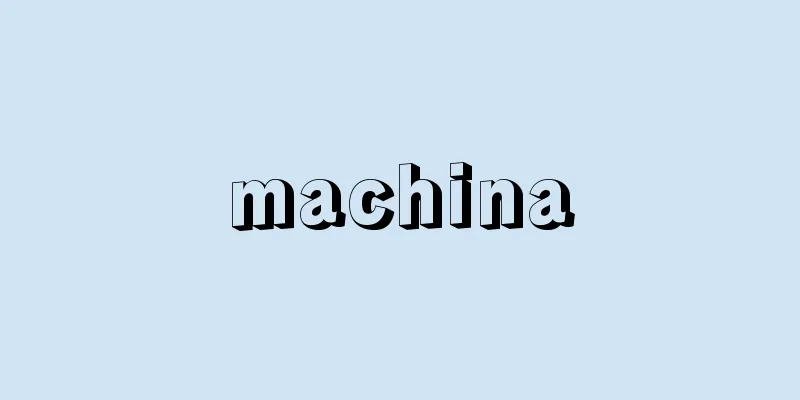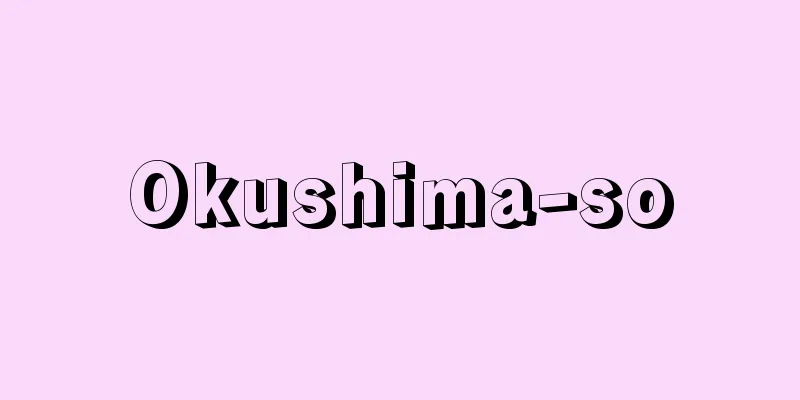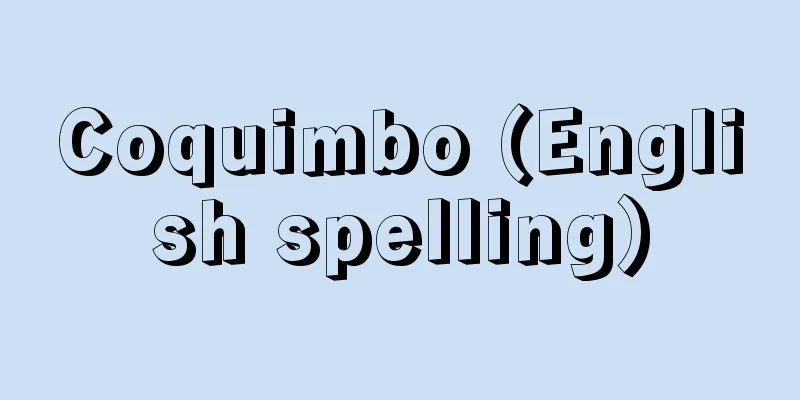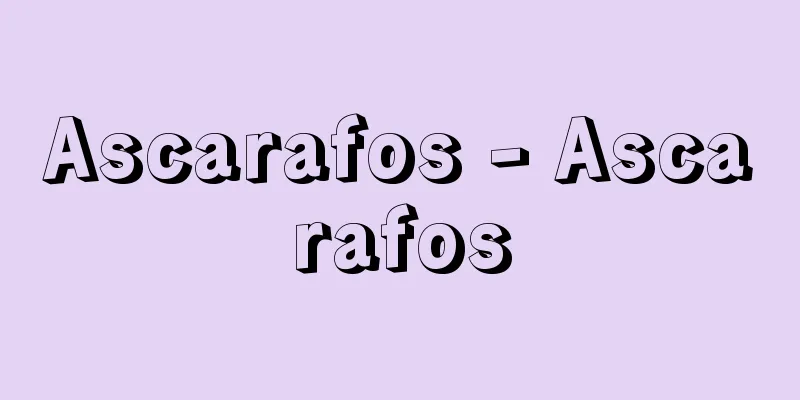machina

|
… The Dutch and English word machine is originally derived from the Greek mechane, which passed into Latin as machina, and was passed down to all modern European languages. According to Heron of Alexandria, the Greek mechanes were levers, wheels, wedges, screws, and pulleys. … *Some of the terminology that mentions "machina" is listed below. Source | Heibonsha World Encyclopedia 2nd Edition | Information |
|
… オランダ語や英語のmachineはもとギリシア語のメカネmēchanēからできた語である。メカネがラテン語に入ってマキナmachinaになり,それがヨーロッパの各近代語に変わったのである。ギリシアでメカネと呼ばれたものは,アレクサンドリアのヘロンによれば,てこ,ろくろ,くさび,ねじ,滑車である。… ※「machina」について言及している用語解説の一部を掲載しています。 出典|株式会社平凡社世界大百科事典 第2版について | 情報 |
<<: Machilus japonica (English name)
>>: machine à habiter (English spelling) machineahabiter
Recommend
Giffen goods - Giffen goods
…There are exceptional cases where the law of dem...
Shotted halibut - Shotted halibut
A marine fish of the family Pleuronectidae in the ...
Amakusa Gakurin
...In the early 10th century during the Heian per...
Chorakuji Temple
[1] A Tendai sect temple in Ota City, Gunma Prefec...
Precision guided munition
Weapons that can locate and hit their targets, suc...
Druid - Druid (English spelling)
The priestly class of the Celts originated around...
Arenaria serpyllifolia; sandwort
A delicate biennial plant of the Caryophyllaceae f...
The Three Great Men of the Meiji Restoration
The three men were the leaders of the Meiji Restor...
Mean deviation
An index of statistical dispersion (variability). ...
Inocybe rimosa (English spelling)
...A poisonous mushroom of the family Cardinalace...
Vat dyes - Tatezome Senryo
Also known as vat dyes. A group of dyes represente...
Standards for welfare assistance - Seikatsuhogokijun
It specifically indicates the minimum standard of ...
Eisa - Eisa
Bon Odori is a dance that is practiced throughout...
Nagasaki Trade
Foreign trade was conducted through Nagasaki in t...
Shukuin Buddhist Sculptor
During the Muromachi period, this group of Buddhis...



![Ikoma [city] - Ikoma](/upload/images/67cae74436231.webp)





